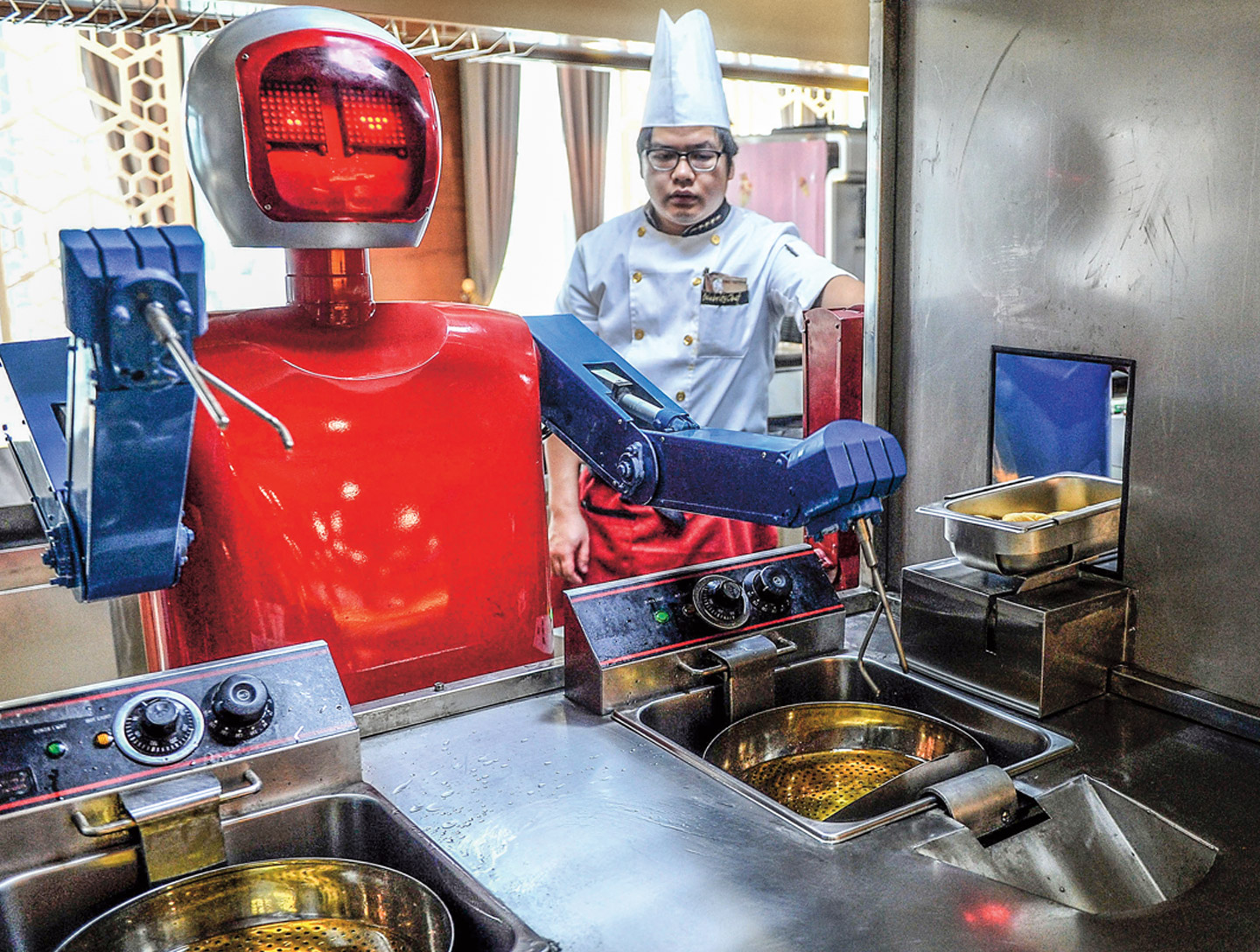The staffers at the Henn-na Hotel near Nagasaki, Japan, are always friendly, report to work on time, and never call in sick. But they aren’t ordinary employees—they’re robots. At the world’s first hotel staffed almost entirely by machines, humanlike robots chat with guests, carry customers’ luggage, and deliver room service.
The hotel, which opened in 2015, may sound like fun, but it’s no laughing matter for the people who were passed over for jobs given to the robots. And those people are about to have a lot of company—not only in Japan but in the United States. According to researchers at Oxford University in England, nearly half of all U.S. jobs—including 70 percent of low-skilled professions—are at risk of being replaced by technology within the next two decades (see graphic below).
Worldwide, many hospitals are already using robots to run lab tests and help diagnose patients. Restaurants are relying on computers to take orders and prepare food. And in recent years, many bank tellers, tollbooth operators, cashiers, tax preparers, and travel agents have been replaced by machines.
But as robots take on more work, what will happen to human workers? Historically, technological advances have created more jobs than they’ve eliminated. But today’s sophisticated automation—including driverless cars and robots that can read facial expressions—may prove to be a bigger threat to jobs than the technology of previous decades.
“Machines are learning to do human things that they never, ever could do before,” says Andrew McAfee, a scientist at the Massachusetts Institute of Technology (MIT) in Cambridge, Massachusetts.

